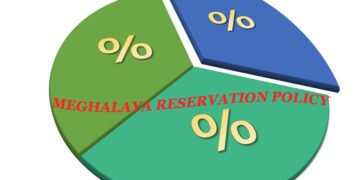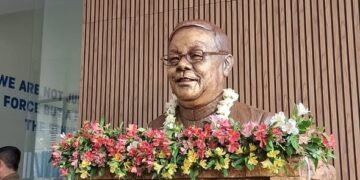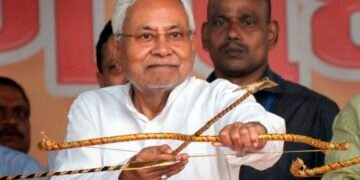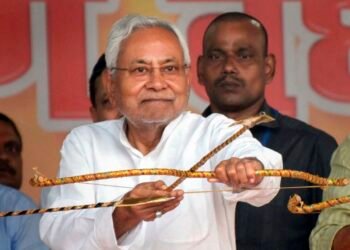With less than a week to go for the first phase of Lok Sabha elections on April 19, all political parties are making promises to woo the electorate. Rahul Gandhi, the perpetual youth leader of Congress party offered the ultimate ‘Khatakhat’ solution to address poverty in the nick of 2024 Lok Sabha elections. During his election speech in Rajasthan last week, he had said: “The Congress government will transfer Rs one lakh to the bank account of a woman from every poor family in the country… khatakhat khatakhat aata rahega aur ek jhatke se hum Hindustan se gareebi ko mita denge (it will come instantly and we will remove poverty from Hindustan).”
The solution is a sharp contrast to the statement that Rahul Gandhi made 11 years ago in Uttar Pradesh when he said that “poverty is a state of mind.” In August 2013, the Congress leader was participating in a discussion in Uttar Pradesh when he said: “Poverty is just a state of mind. It does not mean the scarcity of food, money or material things. If one possesses self-confidence, then one can overcome poverty.” If, in 2013, Rahul believed that providing the right atmosphere to earn and sustain can help tackle poverty, then why the U-turn in 2024? A decade of sitting in the opposition has made the Congress scion believe that promising doles is the only way to impress people.
The system of transferring money in accounts is the easiest way to the hearts of people. Had it been so easy then Karnataka and Telangana economies would not have been struggling with fulfilling the pre-election promises on guarantees. Various development activities have almost stopped and legislators, even from the Congress, are unhappy as fund flow is slow. Rahul Gandhi said that if voted to power, his government would conduct a caste census to know the exact population and status of backward communities, SCs, STs and minorities. After that, the financial and institutional survey will be done and finally, the “historic assignment to distribute the wealth of India, jobs and other welfare schemes to these sections based on their population” will be done.
History has examples of several countries under the influence of Communism going for the concept of wealth distribution, but after suffering the ill effects, decided to change again. China tried the same in the 1960s but failed and finally reworked its policies. Today, China’s economy is huge with a rise in wealth, private properties and income gaps. But by talking about wealth distribution, Rahul Gandhi also appears to be taking an about-turn from the liberal economic model of 1991. It was Manmohan Singh, the then Finance Minister in P V Narasimha Rao’s government, who presented a landmark budget, ushering in a new dawn for the country’s economy. Since then, India has not looked back.


























